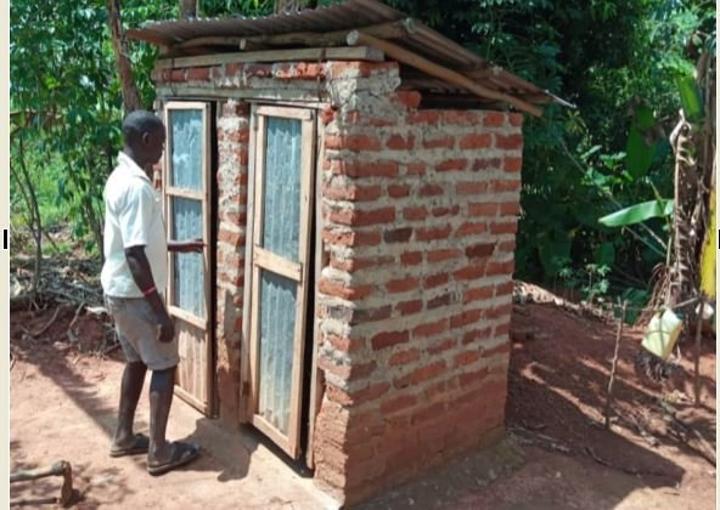Africa-Press – Uganda. Impact.
“The burden of intestinal worms has reduced due to the reduction of open defecation. When you move from home to home, there is a latrine that is used and a handwashing facility,” Edward Naguyo Bumbi, environment health officer at Mayuge District
A total of 15 villages in Mayuge District have been declared open defecation free after building and embracing the use of pit-latrines.To celebrate this milestone, several signposts have been erected in the villages, notifying visitors that they have reached an open defecation-free area.
The villages include Bufuta A, Bufuta B, Kyando, Bubalagala, Budhala B, Bugwanandala and Buyemba B, all in Bukatube Sub-county. Others are Namululi, Nabyama Central, Butumbula, Namakoko, Mairinya A, Bukabooli and Mbale Zone, all in Bukabooli Sub-county.
For long, the 15 villages had endured low latrine coverage, with some residents defecating in the open.Mr Mangeni Christopher, the chairperson of Kyando Village in Bukatube Sub-county, on Tuesday said most of the 5,700 residents had resorted to visiting the bushes after deeming having a toilet ‘unnecessary’.This, he said, had increased the risk of getting bilharzia and intestinal worms among the residents. “We were, however, sensitised, built toilets with concrete floors while others improved on theirs. The residents were awakened after learning that their lifestyle put them at risk of contracting bilharzia,” he said.
The latrines have increased access to improved and inclusive sanitation which has broken the transmission cycle of intestinal worms and bilharzia due to proper disposal of faeces.World Vision, with support from Korea International Cooperation Agency (KOICA), has since May 2019 been implementing a three-year $3.8m (Shs14.3b) Mayuge Neglected Tropical Diseases project in the district to eliminate schistosomiasis (bilharzia) and soil transmitted helminths, which are two prevalent neglected tropical diseases in the area.
Mr Anthony Odoi, a project officer with World Vision, said some of their approaches have been through improving hygiene and sanitation, increased access to safe water and advocacy.“Through community-led total sanitation (CLTS), we have been able to help the communities realise the negative effects of open defecation; and once they realise that there is a problem, it triggers an action,” Mr Odoi said.To achieve this milestone, he said they followed up with routine monitoring of the villages and sensitisation.
Mr Odoi added that the monitoring was carried out by community health workers, community development officers and health assistants for about six months, while World Vision engaged the district local government, one of their key partners.Mr Godfrey Wakwabubi, a senior environmental health officer in the Ministry of Water and Environment, said following an assessment visit to Mayuge District last year, they were impressed to see that toilets had been built and handwashing had improved.






